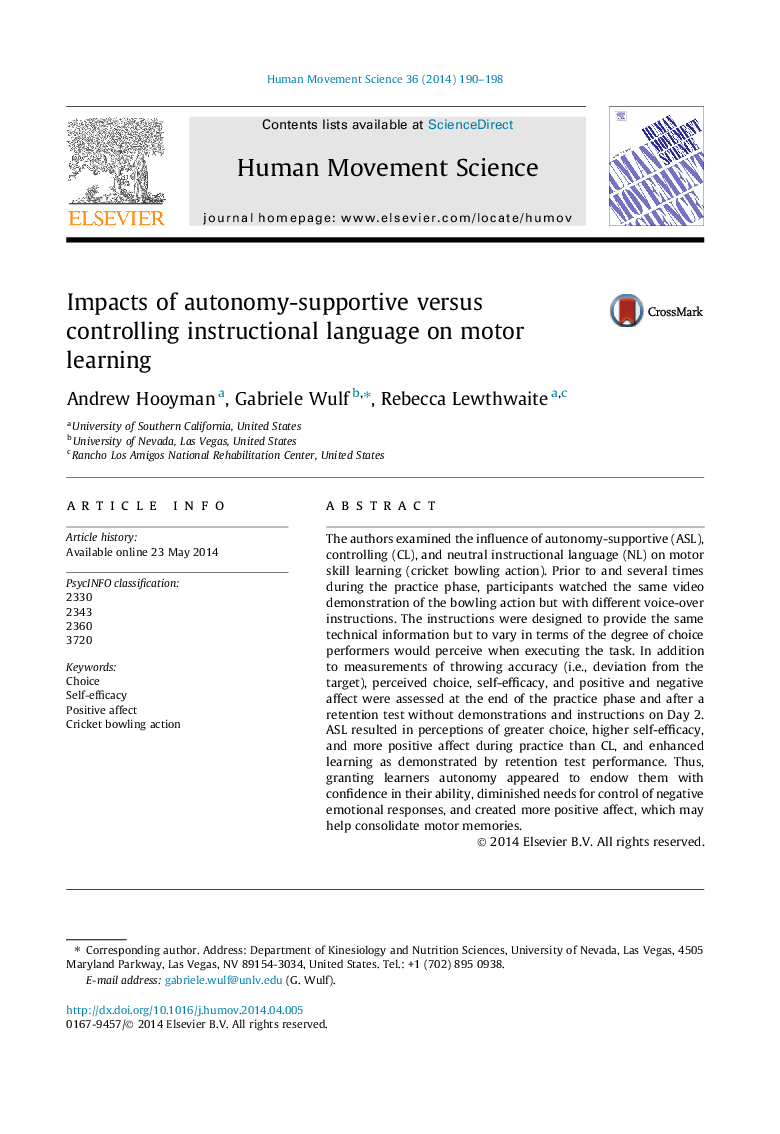| Article ID | Journal | Published Year | Pages | File Type |
|---|---|---|---|---|
| 928333 | Human Movement Science | 2014 | 9 Pages |
•We examine the influence of autonomy-supportive, controlling, and neutral instructional language on motor skill learning.•Autonomy-supportive language and neutral language result in higher self-efficacy than controlling language.•Autonomy-supportive language increases positive affect relative to controlling language.•Autonomy-supportive language enhances learning compared with controlling language.
The authors examined the influence of autonomy-supportive (ASL), controlling (CL), and neutral instructional language (NL) on motor skill learning (cricket bowling action). Prior to and several times during the practice phase, participants watched the same video demonstration of the bowling action but with different voice-over instructions. The instructions were designed to provide the same technical information but to vary in terms of the degree of choice performers would perceive when executing the task. In addition to measurements of throwing accuracy (i.e., deviation from the target), perceived choice, self-efficacy, and positive and negative affect were assessed at the end of the practice phase and after a retention test without demonstrations and instructions on Day 2. ASL resulted in perceptions of greater choice, higher self-efficacy, and more positive affect during practice than CL, and enhanced learning as demonstrated by retention test performance. Thus, granting learners autonomy appeared to endow them with confidence in their ability, diminished needs for control of negative emotional responses, and created more positive affect, which may help consolidate motor memories.
